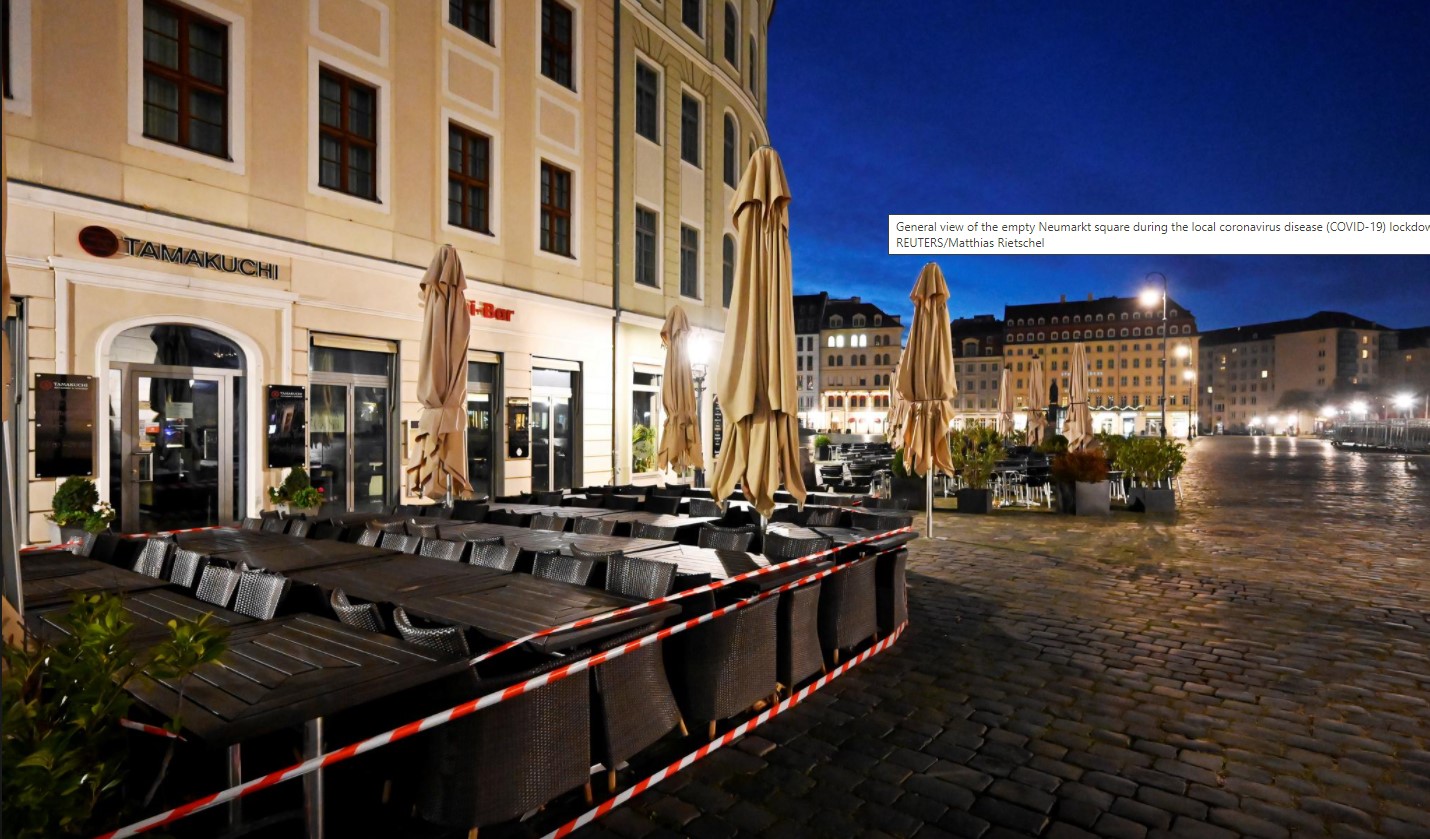Germany is unlikely to lift its coronavirus lockdown early next year, a top aide to Chancellor Angela Merkel said on Monday, signalling Europe’s biggest economy will have to contend with the crippling restrictions well into the winter months.
Merkel and German state leaders agreed to shut most stores from Wednesday until Jan. 10 to reverse a tide of COVID-19 infections that lighter restrictions introduced last month had failed to tame.
-A comprehensive easing is very, very unlikely- Helge Braun, Merkel’s chief of staff, told the RTL broadcaster. -January and February are always difficult months in terms of respiratory tract infections.-
Under the stricter rules, only essential shops such as supermarkets and pharmacies, as well as banks, are to remain open from Dec. 16. Hair salons, beauty salons, and tattoo parlours will also have to shut.
The Robert Koch Institute (RKI) for infectious diseases reported more than 16,000 new cases and 188 deaths on Monday, almost half the daily infections reported late last week. But the drop could be linked to fewer tests being carried out and less data being transferred to the RKI during the weekend.
Economy Minister Peter Altmaier said the decision to shutter most aspects of social and economic life was necessary to bring the pandemic under control and prevent a recession next year.
Germany is forecast to suffer its worst recession since World War Two this year, and Altmaier said the longer the lockdown the bigger the economic fallout.
-It is possible, if we are smart, to protect the economy- he told public broadcast Deutschlandfunk. -This requires financial aid and that we don’t have to always extend the lockdown indefinitely because we were not courageous enough.-
Merkel had hoped that a “lockdown lite” imposed in November will significantly bring down infections to a level that allows Germans to celebrate Christmas and New Year’s under almost normal circumstances.
But those hopes have been dashed by stubbornly high infection numbers that gave the chancellor, whose fourth and last term ends in less than a year, no choice but to seek a hard lockdown during the Christian festive season.
Unlike Britain and the United States, Germany doesn’t yet have approval for a vaccine against COVID-19. As a member of the European Union it must await the go-ahead by the European drugs regulator for the jab developed by Pfizer Inc and BioNTech.
Health Minister Jens Spahn expressed frustration with the lack of a decision by the European Medicines Agency (EMA) on whether the jab was safe.
-All the necessary data on BioNTech are available- he wrote on Twitter. -UK + US have already granted approval. An assessment of the data and an approval by EMA should happen as fast as possible.-
